Bharat Ratna A.P.J. Abdul Kalam
Bharat Ratna A.P.J. Abdul Kalam
People’s president; extraordinary Indian; Missile Man of India
- Compiled by Subbu
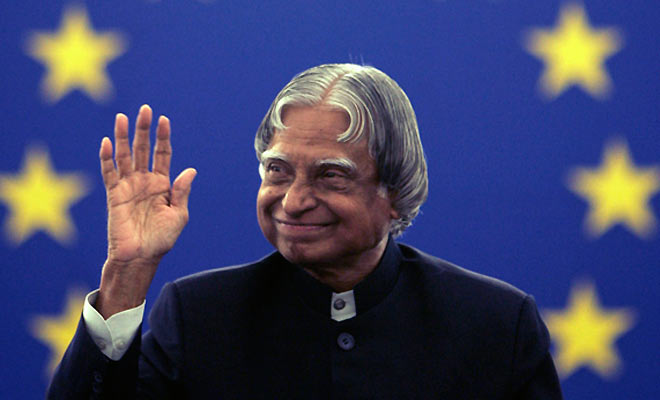 Bharat Ratna Avul Pakir Jainulabdeen Abdul Kalam, generally known as Dr. A.P.J. Abdul Kalam, was the 11th President of India (2002-07). He is one of the few presidents who have touched the hearts thats why during his term as President, he was popularly known as the People’s President.
Bharat Ratna Avul Pakir Jainulabdeen Abdul Kalam, generally known as Dr. A.P.J. Abdul Kalam, was the 11th President of India (2002-07). He is one of the few presidents who have touched the hearts thats why during his term as President, he was popularly known as the People’s President.
By profession he was a scientist and an administrator in India. He worked with Indian Space Research Organisation (ISRO) and Defense Research and Development Organisation (DRDO) as an aerospace engineer before becoming the President of India. His work on the development of launch vehicle and ballistic missile technology had earned him the name of the 'Missile Man of India'. The Pokhran-II nuclear tests conducted in India in 1998 after the age-long original nuclear test of 1974 saw him in a pivotal political, organisational and technical role.
Dr. A.P.J. Abdul Kalam was the visiting professor at the Indian Institute of Management, Indore; the Indian Institute of Management, Ahmadabad; and the Indian Institute of Management, Shillong. He was a professor of Aerospace Engineering at the JSS University in Mysore and at the Anna University in Chennai, apart from being an adjunct and visiting faculty at other research and academic institutions in India. He was the honorary fellow of the Indian Institute of Science, Bengaluru and the Chancellor of Indian Institute of Space Science and Technology at Thiruvananthapuram.
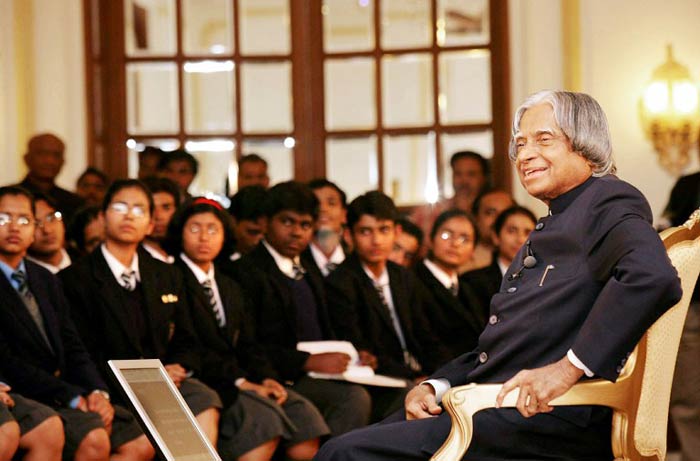
In his book India 2020, he has recommended plans to make the nation a fully developed one by the year 2020. His interactions with the student community and his motivational speeches have made him quite popular among the youth. In 2011 he launched a mission called 'What Can I Give Movement' aimed at the youth of India, which focused on defeating corruption in the country.
Dr. A.P.J. Abdul Kalam was born to a poor Tamil Muslim family on 15 October 1931 at Rameswaram in the state of Tamil Nadu, India. His father, Jainulabdeen, was a boat owner, and his mother, Ashiamma, was a homemaker. He had seven siblings, and a doting mother who, at times, made chappatis for Kalam, while the others were given rice as Kalam's day would start at four in the morning and end at 11 pm.
He started working at a young age to support his father. He was a hardworking and bright student with a strong desire to learn things. He used to study for hours, especially mathematics. He completed his schooling from Rameshwaram Elementary School. In 1954 he graduated in Physics from St. Joseph's College in Tiruchirappalli, which was then affiliated to the University of Madras. Thereafter in 1955 he moved to Madras and joined the Madras Institute of Technology and studied aerospace engineering. His dream was to become a fighter pilot but he was ranked ninth while the IAF offered only eight slots. He was a bachelor.
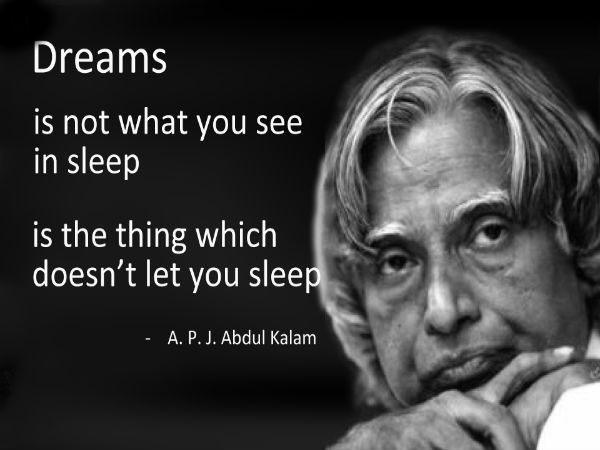 Kalam was brought up in a multi-religious, tolerant society; one with a progressive outlook. His father often quoted from the Quran to make the young Kalam see the world without fear. His father wasn't educated, but he wanted Kalam to study. Kalam would get up at 4 am, bathe, and then go for his mathematics class, which was taught by a teacher who took only five students in the whole session; and bathing before class was a condition he had laid to all his students. After his morning class, Kalam along with his cousin Samsuddin went around town distributing the newspaper. As the town had no electricity, kerosene lamps were lit at his home between 7 pm and 9 pm. But because Kalam studied until 11, his mother would save some for him for later use.
Kalam was brought up in a multi-religious, tolerant society; one with a progressive outlook. His father often quoted from the Quran to make the young Kalam see the world without fear. His father wasn't educated, but he wanted Kalam to study. Kalam would get up at 4 am, bathe, and then go for his mathematics class, which was taught by a teacher who took only five students in the whole session; and bathing before class was a condition he had laid to all his students. After his morning class, Kalam along with his cousin Samsuddin went around town distributing the newspaper. As the town had no electricity, kerosene lamps were lit at his home between 7 pm and 9 pm. But because Kalam studied until 11, his mother would save some for him for later use.
Being a bright student, Kalam always had the support of his schoolteachers. Schwarzt High School's Iyadurai Solomon often told Kalam that if he truly, intensely desired something, he would get it. "This made me fearless," said Dr Kalam. And outside school, Ahmed Jallaluddin, who later became his brother-in-law, and Samsuddin, encouraged Kalam to appreciate nature's wonders. So at once, while growing up, he was exposed to a religious and a practical way of looking at the world.
The flight of birds had fascinated him since he was a boy, but it was years later he realised that he wanted to fly aircrafts. After finishing school, he took up Physics at St Joseph's College, Trichi, but towards the end he was dissatisfied. When he discovered aeronautical engineering, he regretted having lost three precious years. But he was glad to have discovered Leo Tolstoy, Thomas Hardy and F Scott Fitzgerald and other English poets in his college years.
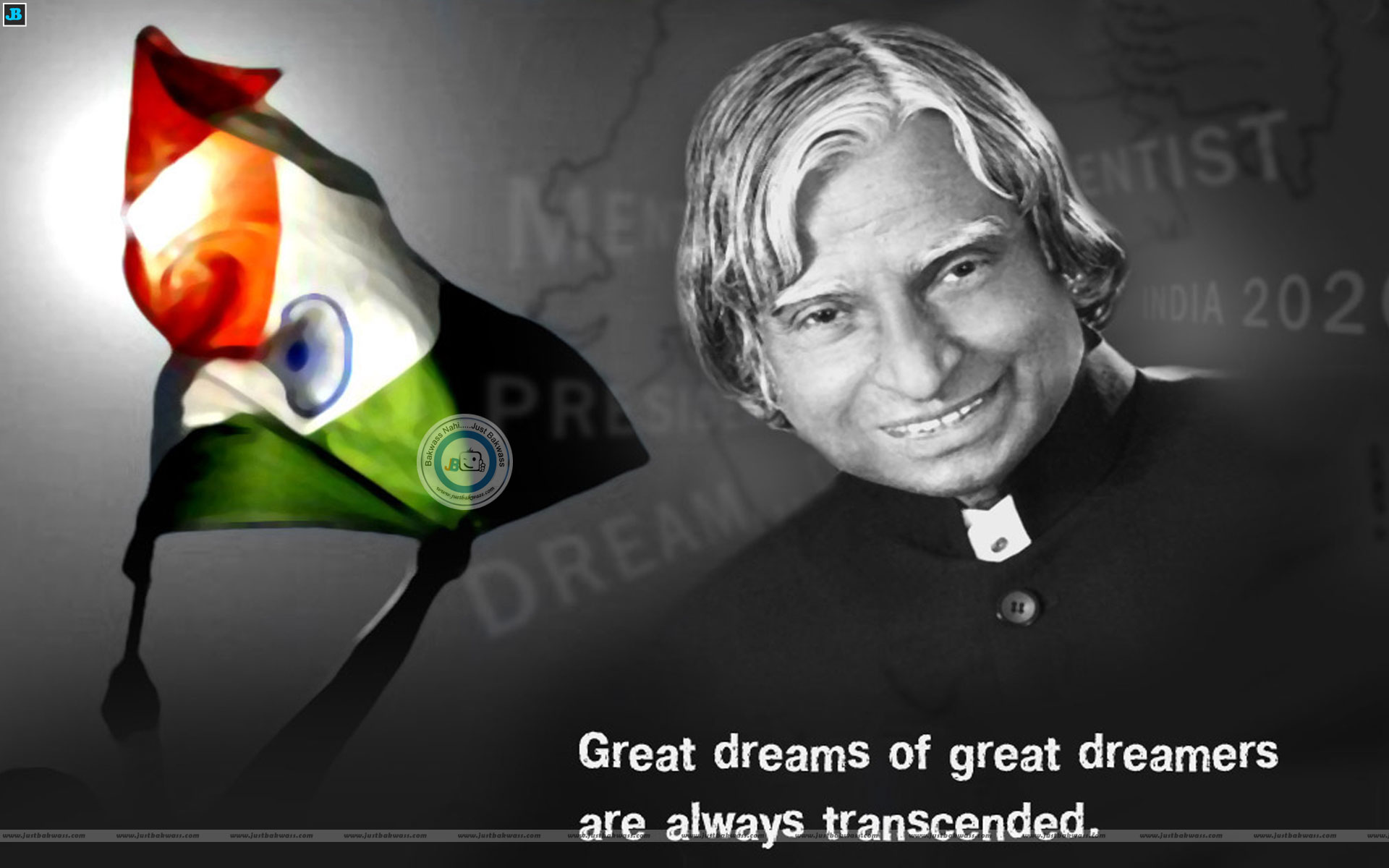 At Madras Institute of Technology (MIT), Chennai, where Kalam studied aeronautics, he learnt an important lesson: the value of time. He was leading a project on system design, when one day the principal walked into the class to see his work. He appeared dissatisfied and told Kalam that he wanted the project finished in the next two days; else his scholarship aid would be withdrawn. That unsettled Kalam; years of his father's hardships would come to naught. Kalam worked without food and sleep. On the last day, his professor came to check on his progress. He was impressed and said: "I was putting you under stress and asking you to meet a difficult deadline," recounted Dr Kalam.
At Madras Institute of Technology (MIT), Chennai, where Kalam studied aeronautics, he learnt an important lesson: the value of time. He was leading a project on system design, when one day the principal walked into the class to see his work. He appeared dissatisfied and told Kalam that he wanted the project finished in the next two days; else his scholarship aid would be withdrawn. That unsettled Kalam; years of his father's hardships would come to naught. Kalam worked without food and sleep. On the last day, his professor came to check on his progress. He was impressed and said: "I was putting you under stress and asking you to meet a difficult deadline," recounted Dr Kalam.
Although Kalam has led several projects in his professional life, he's treated each like his last. Such was his passion. No wonder, he's always led projects. His advisor, Major General R Swaminathan explained Kalam's success as a leader. "He has this unique capability of being a boss as well as a worker. He can take on any role with ease."
When Dr Kalam's first major project SLV 3-failed the first time he was almost shattered. Also, around this time, Kalam's childhood mentor, Jallaluddin, died. "A part of me too passed away..." said Dr Kalam. But he never thought of quitting after SLV-3. "I knew that for success, we have to work hard and persevere." And so, SLV-3 was launched again, this time with success. He drew strength from philosophy, religion and literature to tide by his professional setbacks; also a life with few companions. In time, he also learnt to deal with professional jealousy and uncooperative team members.
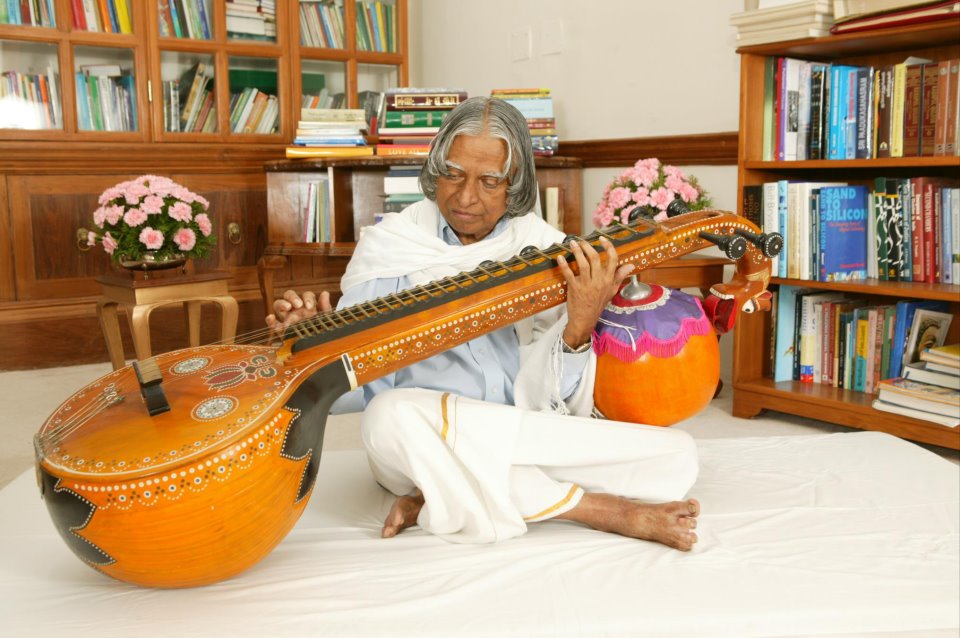 Dr. Kalam made significant contribution as Project Director to develop India's first indigenous Satellite Launch Vehicle (SLV-III) which successfully injected the Rohini satellite in the near earth orbit in July 1980 and made India an exclusive member of Space Club. He was responsible for the evolution of ISRO's launch vehicle programme, particularly the PSLV configuration. Success followed Dr Kalam. Prithvi, Agni, Akash, Trishul and Nag missiles were huge successes.
Dr. Kalam made significant contribution as Project Director to develop India's first indigenous Satellite Launch Vehicle (SLV-III) which successfully injected the Rohini satellite in the near earth orbit in July 1980 and made India an exclusive member of Space Club. He was responsible for the evolution of ISRO's launch vehicle programme, particularly the PSLV configuration. Success followed Dr Kalam. Prithvi, Agni, Akash, Trishul and Nag missiles were huge successes.
After working for two decades in ISRO and mastering launch vehicle technologies, Dr. Kalam took up the responsibility of developing Indigenous Guided Missiles at Defence Research and Development Organisation as the Chief Executive of Integrated Guided Missile Development Programme (IGMDP). He was responsible for the development and operationalisation of AGNI and PRITHVI Missiles and for building indigenous capability in critical technologies through networking of multiple institutions. He was the Scientific Adviser to Defence Minister and Secretary, Department of Defence Research & Development from July 1992 to December 1999. During this period he led to the weaponisation of strategic missile systems and the Pokhran-II nuclear tests in collaboration with Department of Atomic Energy, which made India a nuclear weapon State. He also gave thrust to self-reliance in defence systems by progressing multiple development tasks and mission projects such as Light Combat Aircraft.
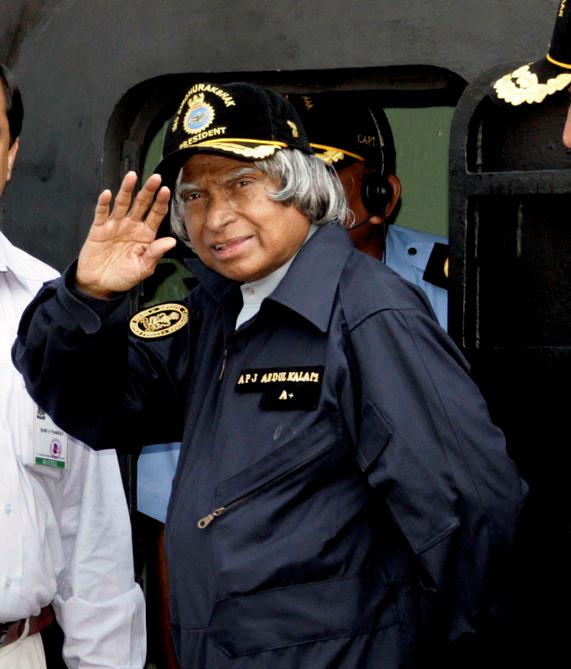 As Chairman of Technology Information, Forecasting and Assessment Council (TIFAC) and as an eminent scientist, he led the country with the help of 500 experts to arrive at Technology Vision 2020 giving a road map for transforming India from the present developing status to a developed nation. Dr. Kalam has served as the Principal Scientific Advisor to the Government of India, in the rank of Cabinet Minister, from November 1999 to November 2001 and was responsible for evolving policies, strategies and missions for many development applications. Dr. Kalam was also the Chairman, Ex-officio, of the Scientific Advisory Committee to the Cabinet (SAC-C) and piloted India Millennium Mission 2020.
As Chairman of Technology Information, Forecasting and Assessment Council (TIFAC) and as an eminent scientist, he led the country with the help of 500 experts to arrive at Technology Vision 2020 giving a road map for transforming India from the present developing status to a developed nation. Dr. Kalam has served as the Principal Scientific Advisor to the Government of India, in the rank of Cabinet Minister, from November 1999 to November 2001 and was responsible for evolving policies, strategies and missions for many development applications. Dr. Kalam was also the Chairman, Ex-officio, of the Scientific Advisory Committee to the Cabinet (SAC-C) and piloted India Millennium Mission 2020.
Dr. Kalam took up academic pursuit as Professor, Technology & Societal Transformation at Anna University, Chennai from November 2001 and was involved in teaching and research tasks. Above all he took up a mission to ignite the young minds for national development by meeting high school students across the country.
In his literary pursuit four of Dr. Kalam's books - "Wings of Fire", "India 2020 - A Vision for the New Millennium", "My journey" and "Ignited Minds - Unleashing the power within India" have become household names in India and among the Indian nationals abroad. These books have been translated in many Indian languages.
Dr. Kalam is one of the most distinguished scientists of India with the unique honour of receiving honorary doctorates from 30 universities and institutions. He has been awarded the coveted civilian awards - Padma Bhushan (1981) and Padma Vibhushan (1990) and the highest civilian award Bharat Ratna (1997). He is a recipient of several other awards and Fellow of many professional institutions.
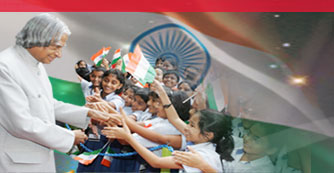 His focus is on transforming India into a developed nation by 2020. He is one of the few presidents who have touched the hearts of so many poor children in the country. Because he also came from a poor background, he knew the power of education in changing one's future.
His focus is on transforming India into a developed nation by 2020. He is one of the few presidents who have touched the hearts of so many poor children in the country. Because he also came from a poor background, he knew the power of education in changing one's future.
His favourite authors are Thiruvalluvar, Lillian Eichler Watson and Denis Waitly. He is a scholar of Thirukkural; in most of his speeches, he quotes at least one kural. Kalam has written several inspirational books, most notably his autobiography Wings of Fire, aimed at motivating Indian youth. He has written poems in Tamil as well. He enjoys Indian classical music and played table tennis and badminton in college.
Dr. A.P.J. Abdul Kalam passed away on 27 July 2015 due to a massive cardiac arrest after he collapsed during a lecture at the Indian Institute of Management, Shillong.
******************************************************************************************************************************************
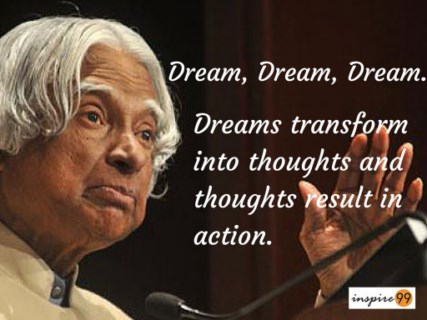
Dr. Kalam's Journey and Achievements as a Scientist
|
After completing his graduation in 1960, Dr. A.P.J. Abdul Kalam joined as a scientist in Defense Research and Development Organisation's Aeronautical Development Establishment. |
|
At the very start of his career he designed a small helicopter for the Indian army. |
|
He also worked under the renowned scientist Vikram Sarabhai as a part of the committee of INCOSPAR. |
| From 1963 to 1964 he visited the Goddard Space Flight Center in Greenbelt, Maryland; the Wallops Flight Facility located at the Eastern Shore of Virginia; and the Langley Research Center of Nasa situated at Hampton Virginia. |
| In 1965, he, for the first time, worked independently in Defense Research and Development Organisation on an expandable rocket project. The programme was expanded in 1969 and more engineers were included after receiving government's approval. |
| He became the Project Director of India's first indigenous Satellite Launch Vehicle (SLV-III) when he was transferred in 1969 to Indian Space Research Organisation (ISRO). In July 1980 his team was successful in deploying the Rohini satellite near the orbit of the Earth. |
| Dr. Kalam's efforts in developing the projects on SLV-III and Polar SLV from 1970s to 1990s proved to be successful. |
| Dr. Kalam directed Project Valiant and Project Devil that aimed at developing ballistic missiles using the technology of the SLV programme that was a success. It is known that the then Prime Minister Indira Gandhi, using her discretionary powers, allotted secret funds when these aerospace projects were disapproved by the Union Cabinet. |
| Dr. Kalam and Dr. V.S. Arunachalam, on the proposal of the then Defense Minister R. Venkataraman, worked on developing a quiver of missiles instead of one at a time. Dr. Kalam was made the Chief Executive of the programme, which was named Integrated Guided Missile Development programme. |
| From July 1992 to December 1999 he remained the Secretary of the Defense Research and Development Organisation, and also the Chief Scientific Advisor to the Prime Minister. This period witnessed the Pokhran II nuclear tests, when Dr. Kalam played a key technological and political role. At the time of the testing phase, he, along with R. Chidambaram, was made the Chief Project Coordinator. |
| He developed a low-cost Coronary Stent along with Dr. Soma Raju, a cardiologist, in 1998. It was named "Kalam-Raju Stent" after them. Both of them also designed a tablet PC called "Kalam-Raju Tablet" for healthcare in rural areas. |
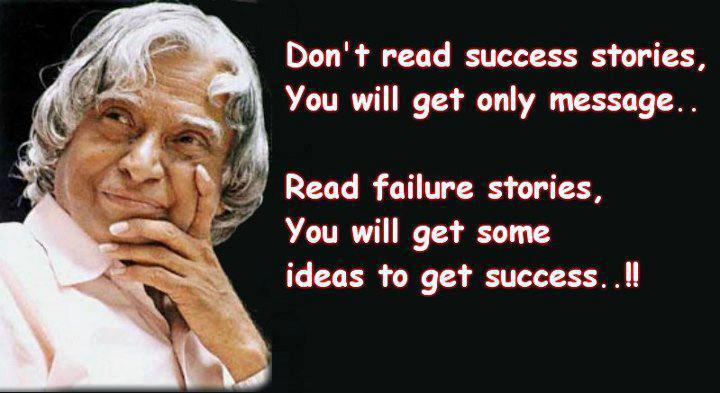
Dr. Kalam's Tenure as President of India
| Dr. Kalam served as the President of India from 25 July 2002 to 25 July 2007. |
|
He won the election, getting 922,884 votes, thus defeating Lakshmi Sehgal, who got 107,366 votes. |
| Dr. Kalam succeeded K.R. Narayanan as the 11th President of India. |
| He was the third President of India to have received the prestigious Bharat Ratna, the highest civilian honour. It was earlier given to Dr. Sarvapali Radhakrishnan in 1954 and Dr. Zakir Hussain in 1963. |
| He was the first bachelor and scientist to reside in the Rashtrapati Bhavan. |
|
Dr. Kalam was affectionately called the People's President. |
| According to him the toughest decision taken by him as President was signing the Bill of Office of Profit. |
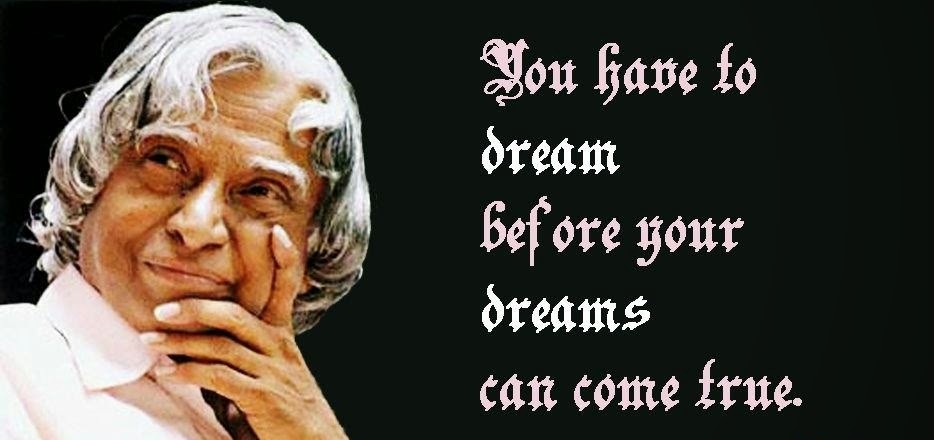
Honours and Awards
| The United Nations has recognized Dr. Kalam's 79th birthday as "World Student's Day". |
| In 1981 he received the Padma Bhushan and in 1990 the Padma Vibhushan from the Indian Government for his work with DRDO and ISRO and as scientific advisor to the government. |
| He received the Bharat Ratna in 1997 for his contribution in the field of scientific research, development and modernisation of technology in the defense sector of India. |
| In 1997, the Indian National Congress conferred him with the Indira Gandhi Award for National Integration. |
| In 1998 the Government of India gave him the Veer Savarkar Award. |
| The Alwars Research Centre of Chennai bestowed on him the Ramanujan Award in 2000. |
| The University of Wolverhampton in UK bestowed on him the Honorary Doctorate of Science in 2007. |
| The Royal Society of UK honoured him with the King Charles II Medal in 2007. |
| In 2008 he received the Doctor of Engineering (Honoris Causa) from Singapore's Nanyang Technological University. |
| The California Institute of Technology, USA honoured him with the International von Karman Wings Award in 2009. |
| He received the Hoover Medal from ASME Foundation, U.S.A in 2009. |
| The University of Waterloo honoured him with the Doctor of Engineering in 2010. |
| In 2011 he became the Honorary member of the IEEE. |
| In 2012 the Simon Fraser University conferred him the Doctor of Laws (Honoris Causa). |
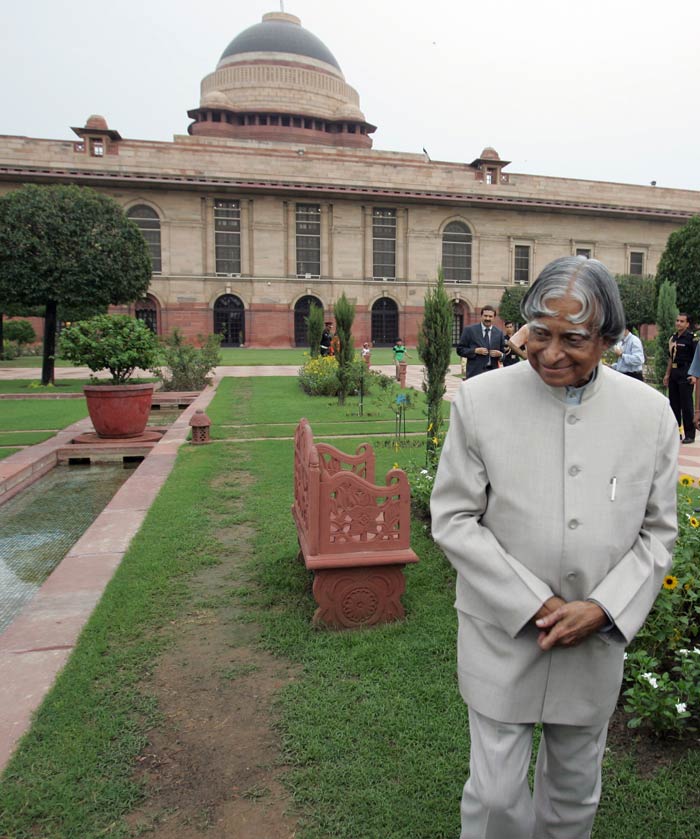
Documentaries and Books by Dr. Kalam
| Ignited Minds: Unleashing the Power Within India |
| Inspiring Thoughts |
| Indomitable Spirit |
| The Luminous Sparks |
| Turning Points: A journey through challenges |
| My Journey: Transforming Dreams into Actions |
| Developments in Fluid Mechanics and Space Technology, by Dr. A.P.J. Abdul Kalam and Roddam Narasimha |
| India 2020: A Vision for the New Millennium, by Dr. A.P.J. Abdul Kalam and Y.S. Rajan. |
| Wings of Fire: An Autobiography, by Dr. A.P.J. Abdul Kalam and Arun Tiwari. |
| Mission India, by Dr. A.P.J. Abdul Kalam . |
| Envisioning an Empowered Nation, by Dr. A.P.J. Abdul Kalam and A. Sivathanu Pillai. |
| You Are Born To Blossom: Take My Journey Beyond, by Dr. A.P.J. Abdul Kalam and Arun Tiwari. |
| Target 3 Billion, by Dr. A.P.J. Abdul Kalam and Srijan Pal Singh |

Biographies
| A.P.J. Abdul Kalam: The Visionary of India, by K. Bhushan and G. Katyal. |
| Eternal Quest: Life and Times of Dr. Kalam, written by S. Chandra. |
| President A.P.J. Abdul Kalam, written by R.K. Pruthi. |
| My Days With Mahatma Abdul Kalam, written by Fr. A.K. George. |
| A Little Dream, a documentary film by P. Dhanapal, Minveli Media Works Private Limited. |
| The Kalam Effect: My Years with the President, written by P.M. Nair. |
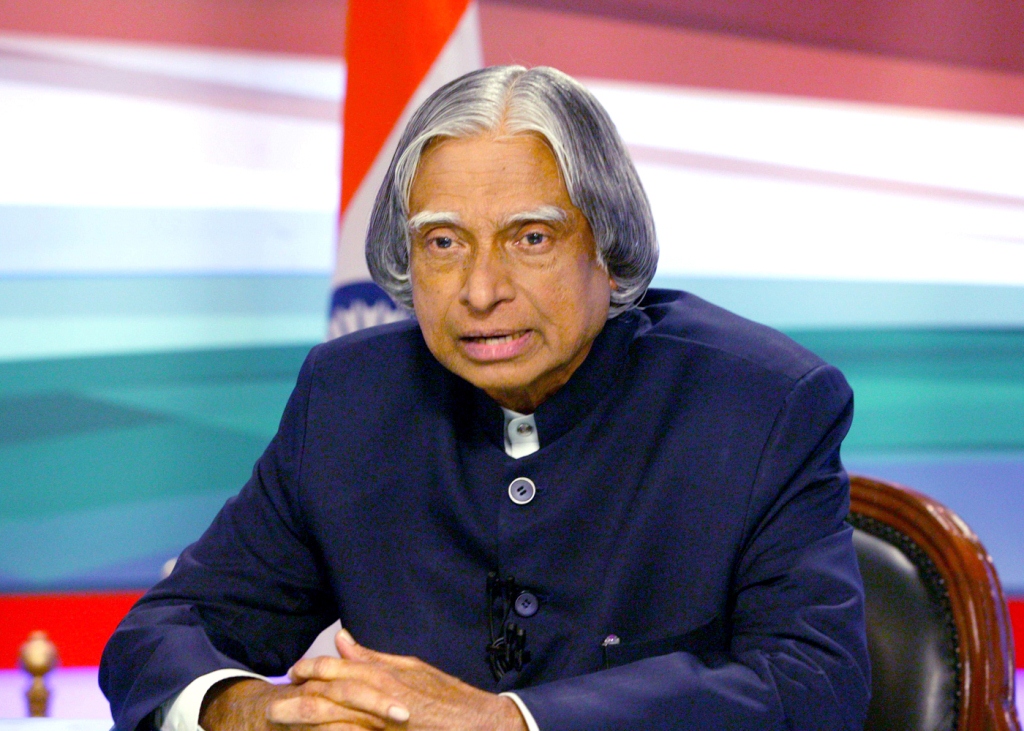
Dr Kalam was not only the President of the nation, but also a mentor, a guide to the entire country. He had a vision for the country; His demise is a big loss for the country. He will always be alive in millions of people’s heart and thoughts. We will miss his presence physically, but spiritually he will always be with us. We Indianfrontliners Team pay homage to his great soul.
************




